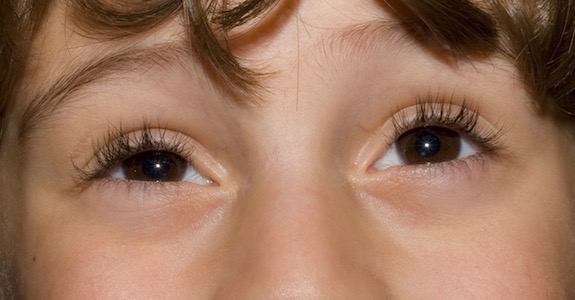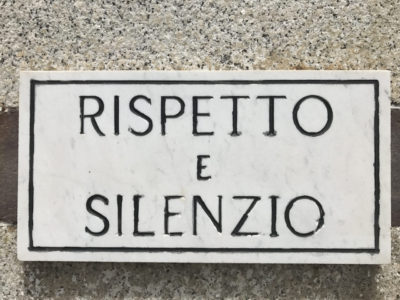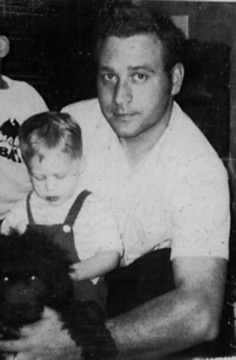
Consciousness
At some magic age when he’s not quite a man but no longer a child, he will learn that I was a reluctant fraud.
For now, he looks at me with doe-brown eyes so clear and curious and ebullient that it seems life itself begins in them. Those eyes view me as a protector, a provider, and a teacher. He is wise far beyond his ten years, but he’s evolutionarily hardwired not to see my faults, my fragility, or my mortality.
Someday, that will change, because it’s inevitable.
When that happens, he’ll finally understand that I am not entirely unlike some of the people we malign while watching the nightly news together. I’m not a rapist or a murderer or a thief, of course. The worst he’ll likely see me do is break some traffic laws and curse at others who refuse to break them with me. But my own humanness will reveal itself nonetheless as the veil of immaturity is slowly torn away from those beautiful eyes.
He and I have seen too many stories about maniacs who gunned down people randomly on the street, or at a concert, or in a school. He used to ask me why, but my answers were painfully truthful: I don’t know. I don’t understand any of it myself, boy.
Does he think about this — even for a split second —every time he walks into his school? Does he wonder, Will someone like that come in to my classroom today? Will Papà save me from the bad guys?
Someday, when his consciousness is fully-developed, he will understand that I never really could protect him, not from anything of consequence: not terrorists, not illness, not accidents nor gunmen nor plane crashes.
He has begun to confront the concept of his own mortality far younger than I had wanted for him. While I concede that doing so is part of growing up, I also contend that the timing is a result of growing up in his world. It is his world now, because I rarely recognize it as mine any more. Perhaps more than any other two successive generations in history, we lack a solid set of common starting points.
I hesitate to use such a hackneyed example, but it's true: I am not even fifty years old, yet I used to listen to all three speeds of vinyl records growing up. Then I used 8-tracks, then cassettes, and then CDs. I had four television stations on one small TV and I waited a week between episodes of my favorite shows. If I wanted to know something, I went to a library, or asked my parents, or looked it up in a giant, dusty set of outdated encyclopedias sitting on bowing shelves. This is the world I was born into, and it much more resembled my parents’ world than it does my son’s.
He was born into a digital world, one of touch screens and downloads and immediate gratification. His is a world on the verge of being as much virtual as it is real. I’ve seen and experienced the full progression of these changes — and made a living from them — but he has no context for them, no basis in the reality that every other generation before his knew. What exists for him now is simply how it has always been.
In my world, there were unwritten rules about public behavior and social interactions with others. Those who might yell on a TV news program or hurl insults at others from their positions of power were outliers held accountable for their transgressions. In my world, religion was not conflated with politics. Politics was not borne of celebrity. None of it was confused with respect, which had to be earned daily.
His world is noisy, angry, and suspicious nearly all the time. He’ll never know the pleasure of walking into an airport and going right to his gate. He only knows standing in a long line, presumed guilty until proven innocent by strangers feeling him up and a series of complex machines analyzing his personal belongings. He has no context for this. This is just how air travel is for him.
He won’t know a time when important discussions — world-shaping negotiations — were held by people who had studied in great depth the things about which they were talking. His leaders break every rule of logical discourse. They bully. They change the argument. They create straw men and slippery slopes. Little by little, the gatekeepers of civility who once challenged and even laughed at people who would do such things are being drowned in a yawning ocean of billions of willfully ignorant voices screaming for any unearned attention of their own.
His news, his internet, his school, and his everything is filled with conflict and skepticism at every level. It’s crammed with email viruses and telephone scammers and data breaches and terrorist drills and politicians screaming and punching and lying — so much obvious lying that even he can call it out now. How, in one generation, did so many unacceptable things become normalized? Must every last shred of innocence and wonder be murdered by constant doubt and mistrust?
As a result of his experiences in his world, he will have to find his own code, one which I can only hope will be based more on observing me and his mother than on observing video games, celebrities, or politicians. I hope his ethical and moral composition will be not only different from what he sees around him but more than what he sees around him. More centered and fair, more forgiving, more thoughtful. More righteous.
Later — much later, if The Fates so desire — he will witness me becoming hunched over, slowly losing my eyesight and my hearing, and one day exhaling for the last time with what I can even now imagine will be considerable relief. He will forgive me for being very little of what he once thought I was, as I did for my parents, and they for theirs, etcetera, etcetera. Amen.
Then he will build the next world.

A Jewish Soldier in WWII

Bittersweet
You May Also Like

Wes Anderson on Lockdown
June 25, 2023
Monumental Cemetery of Milan
April 15, 2018